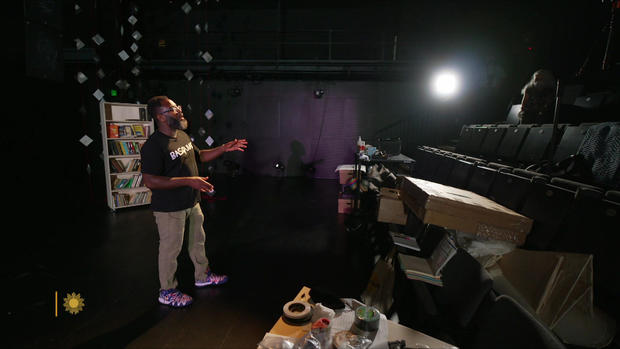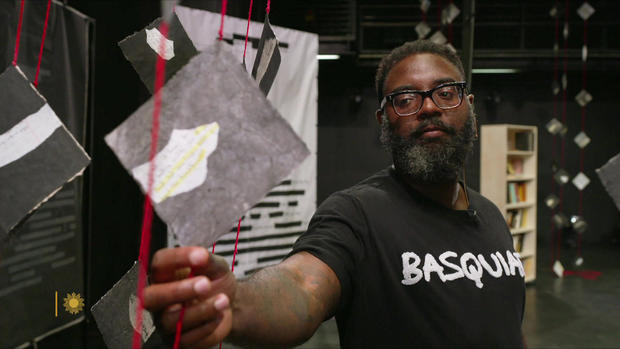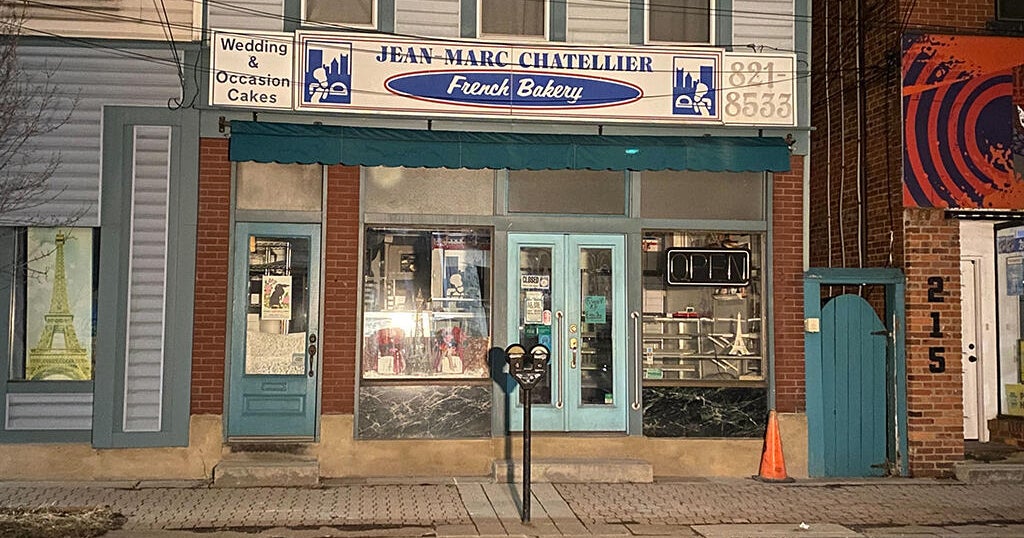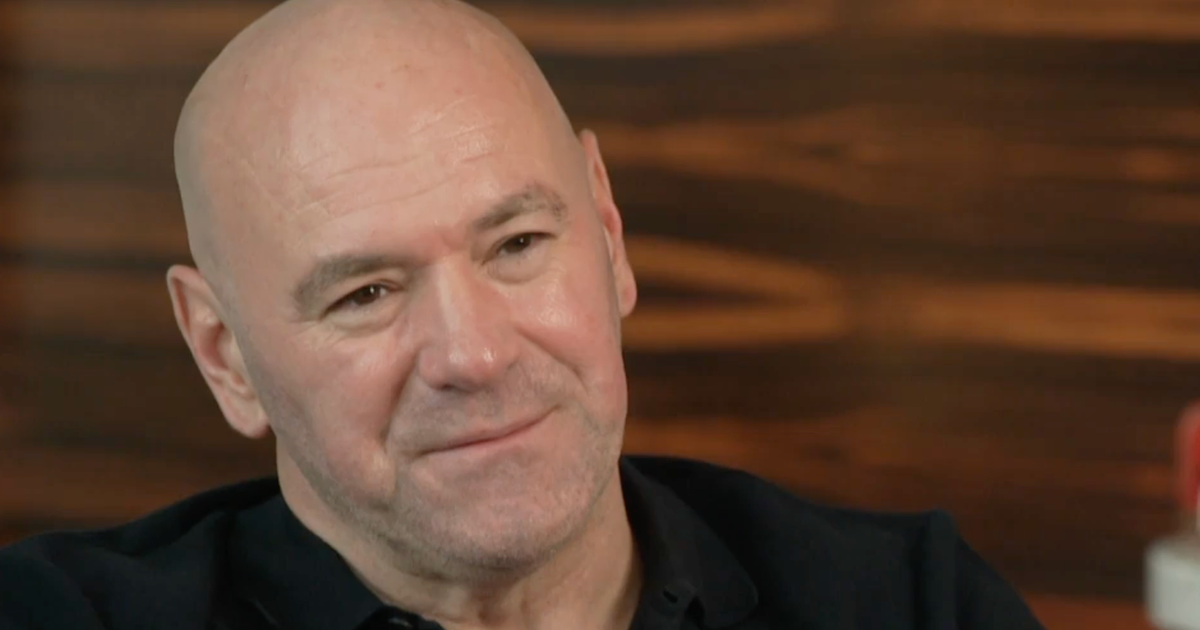Dwayne Betts on his mission: Living a life of second chances
Reginald Dwayne Betts is a poet, playwright, and performer. He's also an attorney. So, if the word "over-achiever" comes to mind, Betts says it's the result of another word that also describes him: felon.
Correspondent Erin Moriarty said, "I haven't known you that long, but I can't imagine the person I know would have found himself at a shopping mall carjacking somebody?"
"Yeah, I know," said Betts. "It's almost kind of like a black swan event in my life. Nothing would have prepared me for it, and nothing would have prepared me for what happened after."
When Betts was 16, an honors student in Maryland, he and a group of teens carjacked a vehicle. Twenty-five years later, he still can't quite explain it: "They weren't friends. The guy who gave me the gun, don't know his name now, didn't know his name then. So, it's just one of those things where if it wasn't true, I wouldn't believe that it was true."
"Everything I know of home is captured in an image of a boy running from the police, his arms flailing unlike anything you'd expect to fly…"
From "Felon: An American Washi Tale," a solo theater piece by Dwayne Betts
Although he had no criminal history, and the victims were not physically harmed, Betts was tried as an adult, and spent almost the next nine years in prison. "I think that the worst part of it all really is being 16 and having to tell your mom that you are locked up, and then also having to tell her that you did it. And this is probably why I immediately started figuring out what I'm gonna be in the world. And I'd planned on being an engineer. But I said to myself, nine years in prison, the only thing I'm guaranteed to have is paper and an ink pen.
"I'm gonna be a writer."
After a fight landed him in solitary, other inmates slipped him books. He describes the moment in a one-man show he wrote:
"They had created a kind of underground library. Hey, yo! Send me a book! And it came! A kind of magic. 'The Black Poets' by Dudley Randall.'"
It was how he discovered poetry. "I'm in the hole, it's summertime in Virginia, it's hot, I'm meeting and discovering Lucille Clifton, Sonia Sanchez, Robert Hayden, Amiri Baraka."
Moriarty asked, "Am I right that poetry gave you a way to tell stories?"
"And it gave me structure. It gave me a vision. And it gave me a way to hold something in my head that I could, like, articulate in a short span of time."
Betts was released when he was 24. His first book, "A Question of Freedom," published in 2009, was a memoir about life in prison. Three books of poetry followed, including one entitled "Felon," the simple word that dogs prison inmates long after their release.
He said, "If you do time in prison, one of the things you that become accustomed to is people telling you what you aren't, and what you can't do: You can't rent this apartment in this place because you have a felony conviction. You can't work at my job because you have a felony conviction. You can't attend my school because you have a felony conviction."
But Betts was able to attend Prince George's Community College. He got a job running a bookstore, which is where he met a classmate, Terese Robertson. It was on their second date that Betts said he had something very difficult to tell her. "That's when he told me that he was just released out of prison a couple of months ago," Terese said. "It kind of took me aback a little bit. But it didn't make me look at him any differently."
"You didn't have second thoughts about a second date?" asked Moriarty.
"No. Actually I didn't!" she replied. "He just comes across so kind and gentle. And he kind of comes off as a nerd, but I feel bad saying that!"
Betts described them as being "like safety blankets for each other, in a way."
They married, and supported each other through school. Dwayne got a master's degree and went on to law school at Yale. "At some point, I decided that I am not getting away from prison," he said. "It's a kind of gravity on my life. But it also could be the lens through which I think about the world. So, my life became better in some ways when I embraced the fact that this is not a thing that I could run from."
The past has given Betts something else, something valuable, even enviable: a mission. He started a non-profit called Freedom Reads that designs, builds and places mobile libraries in prison housing units. "What does it mean if you put this library in the housing unit, so that every time they look out of their cell they're not just seeing the desperation and frustration and another bit of monotony?" he said.
Betts has thought out every aspect of the libraries, not just the books, but also the reclaimed wood that will hold them. "You're seeing your friend go to there and grab books. Now you're like, 'What was you reading?' Now you got a different conversation, 'cause the conversation's not just what was on TV, or who won the spades game, but now we just added another one. And the other conversation's definitely gonna have light in it."
Dwayne Betts lives his life as an argument for second chances. At a recent rehearsal for his show that he now performs in prisons, he is surrounded by paper kites, made from clothing once worn by prison inmates. Some of the clothing came from inmates Betts had served time with, and then, later, helped get parole. "How is it really possible for me to imagine forgetting the people that I spent puberty with? That I spent my early 20s with? People who wrote me letters when I was going through college? People who would get my book in the prison library and be like, 'Shahid, we got your book!'?"
It's Dwayne's drive, despite his past, that Terese hopes will be an example for their sons, 14-year-old Micah and 10-year-old Miles. Terese said, "I think that's one of the things that I love about him, just because he can show our children the tenacity, and to always have that drive and persevere. Life is hard for all of us, for a lot of different reasons, and you can still be the person you want to be despite all of those obstacles."
This past fall, Betts got a mysterious phone call, informing him that he'd won a MacArthur fellowship that comes with a $625,000 grant, and a new word to describe him: "genius."
His son, Micah, said, "It didn't really go to his head because, like, it wasn't like he just realized, 'Oh, I'm a genius now.' Because, like, he already knew that!"
In fact, Reginald Dwayne Betts says the fellowship says far more about the people who surround him.
"I love the MacArthur piece," he said, "but more than affirming my healthy ego, I think it affirms the faith that a lot of folks had in me when they backed me when everyone else was saying no.
"Terese has to know that it mattered when we met, like, 20 years ago. I have done all of this not to make you love me, but to be, like, I was worthy of the love you gave me."
For more info:
Story produced by Kay Lim. Editor: George Pozderec.






